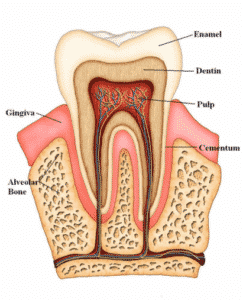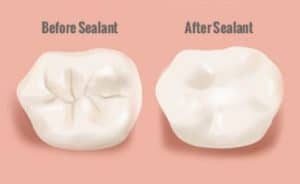
Many people fear going to the dentist, prolonging visits or simply avoiding them altogether. Unfortunately, this can lead to long-term harm, as the body of evidence showing the link between gum disease grows. Visiting your dentist twice a year, and, more importantly, taking his advice, can help you in the long run.
Dr. David Brusky, with over 20 years of experience in providing exceptional dental care, says, “I care a great deal about my patients and want them to experience a full, healthy lifestyle. Part of this comes from continued dental maintenance. I’m always thrilled when a patient and I can work together to achieve the best outcome possible, something that requires strong communication.”
Two-Way Communication
“Patients often feel that dentists or other doctors don’t adequately listen to their concerns,” notes Dr. Brusky, “but it really goes both ways. We want to establish a form of communication where the patient and healthcare provider listen to each other and take seriously the other’s side.”
Part of this can be achieved by asking questions. While your dentist strives to give you the best oral care possible, it’s your duty to ask questions, such as:
- What exactly needs to be corrected in my mouth?
- What problems can arise if I leave this untreated?
- Are there other options to correct what’s wrong?
- How long will the procedure(s) take?
- What’s involved in the treatment?
Then, just as importantly, listen to your dentist carefully. Dentists like Dr. Brusky always have your long-term well-being in mind.
Dr. Brusky explains, “A patient may decline a certain treatment due to cost or timeframe, but there will still be an underlying dental issue that needs to be addressed at some point. I’d much rather get a problem corrected immediately than see the patient five years down the line, requiring a far more drastic procedure.”
Think About the Long Term
Whether your concerns are aesthetic, functional, or both, experienced dentists should be able to find a treatment plan that works for you. Even if the procedures are a bit more costly than you were planning, you will reap long-term benefits by avoiding a potentially more expensive treatment later.
For example, it’s far better to address gum disease or a small decay now than deal with tooth loss down the road. It’s easier and cheaper to wear a nightguard for grinding habits than to restructure an entire smile.
“Since I see the long-term effects of neglected dental care more than most patients do, I understand the need of correcting at least some problems as soon as they arise,” opines Dr. Brusky. “A patient may not fully realize that a smaller procedure now can prevent a much larger one in the future. My aim is to consider each patient’s long-term health and to ensure that their dental work is done properly.”
Ultimately, it’s up to you to choose what to do (or what to ignore) in your dental care. However, if you want the best possible outcomes and a healthy smile, it’s worth noting what kind of treatment plan your dentist suggests to you.
To talk about your options for dental care, schedule an appointment with Dr. Brusky’s office today. He and his outstanding team can develop a treatment plan tailored to your exact needs.












